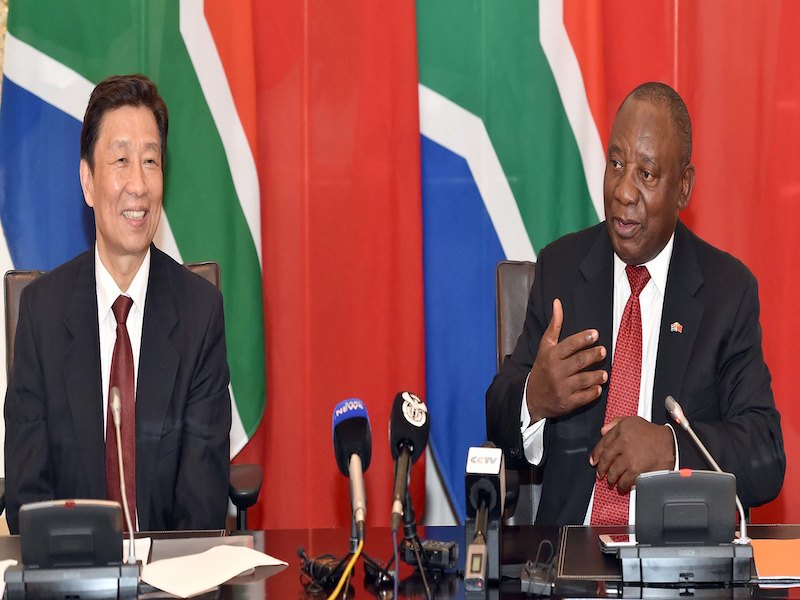China’s Belt and Road Initiative (BRI) has largely been analyzed from the perspective of global trade on the one hand, and the resulting ramifications for Chinese soft power and international affairs on the other. However, there has been relatively little analysis of the domestic attitudes in China towards some of the manifestations of the BRI. Some firms have raised concerns over the challenges of investing in developing countries that could be politically unstable or lacking the human infrastructure to complete projects. However, for the average Chinese citizen, some of the most visible displays of the BRI in action are the influx of international students in Chinese universities and an influx of higher numbers of foreign residents, some of whom will become Chinese citizens. Spots in elite universities are finite, and there is immense difficulty for domestic Chinese students to attain entry. China is also a Han ethnostate, and has exercised concern over domestic security regarding non-Han members. In the enactment of the BRI, we also need to consider the potential domestic security and political ramifications for the Communist Party of China.
A key component of the BRI has been the education infrastructure for international students studying in China. In 2010, the Ministry of Education released a plan to attract half a million international students by 2020. To facilitate this, the government has established generous scholarships that not only cover tuition and accommodation, but provides a stipend as well. Approximately two-thirds of scholarship recipients come from developing countries, and Chinese universities are quickly becoming “magnet” institutions for BRI countries. According to Professor Alan Cheung at the Chinese University of Hong Kong, the education of these students from BRI countries will contribute towards the overall success of infrastructure and policy goals – helping to develop skilled labour for these countries is in China’s benefit.
However, this has stoked discontent at home, as international students are subject to a lower language proficiency level, and are exempt from the gruelling gaokao exam (高考), the most stressful academic examination with the ability to set the course of life for students, dictating university admissions and available careers. Campus facilities offered for international and domestic students are also different– international students would often get an entire dorm room to themselves, while domestic students share a room with six to eight people. These scholarship programs, while serving the larger purpose of BRI and global soft power, are stoking the embers of discontent regarding unequal treatment towards Chinese citizens.
Despite the increased numbers of international students and African migrants, (Guangzhou’s Xiaobei district is colloquially known as “Little Africa”) permanent residency requirements in China have been notoriously strict, having granted only 20,000 permanent residency applications since 2004. As Chinese influence grows, and numbers of foreign residents and students increase, the government recently proposed to loosen permanent residency requirements in late March this year. Opening it up for public consultation, the backlash was swift. Within days, there were hundreds of millions of comments on Weibo, the vast majority of which were vehemently opposed to the lowered requirements, with comments railing against interracial relationships and the lack of population planning policies for foreigners (foreigners are not subject to population and residency policies, and can choose to formally reside and educate their children in any city.)
This is not a new phenomenon. African communities in Guangzhou are policed arbitrarily and frequently and are often referred to as sanfei (三非,) referring to the perceived “illegality” of their entries, stays, and work. In 2017, Chinese politician Pan Qinglin proposed a massive crackdown on African communities in Guangdong, stating that the mingling of cultures would destroy Chinese culture and would heighten the risk of terrorism. China is an ethnostate, with over 90% of the population identifying as Han Chinese, and minimal minority representation in government. The nation-building undertook by the Chinese state since the 1990s has underscored this – it is Han-centric; in other words, to be Chinese is to be Han Chinese, and it is imperative for minorities to assimilate to the national Han Chinese culture. For example, the mainland perception of the recent Hong Kong protests has been negative, with the perception that the Hong Kong people are Chinese people above all, despite the fact that almost no one under the age of 30 in Hong Kong identifies as Chinese. The propaganda efforts by the central government to promote, and to adhere to this Han understanding of the Chinese identity is now at odds with recent efforts to diversify and integrate foreign residents.
It is of particular note that China spends more on domestic security than their entire military. This has correlated with the rise of Han-centrism in the past decade, with domestic defense expenditures tripling since 2007, with per capita expenditures highest in Tibet and Xinjiang. This nation-building coupled with China’s economic success over the past two decades have resulted in a Chinese public that is largely content with the status quo governance. The most recent iteration of Edelman’s Global Trust Barometer shows that the Chinese public has the greatest overall trust in their leadership. While this trust is strong, the current attempts to reverse the three-decade effort in ethnic nation-building have proven to be incredibly unpopular. Continued efforts in this vein need to be considered carefully by the central government, as public discontent could weaken their mandate to rule.
Compounded by the recent public failure in governance regarding COVID-19, any attempts by the government to further their foreign policy goals, particularly those that could be interpreted as “at the expense of the Chinese people,” need to be re-evaluated. This particular aspect of the BRI, given its internal controversy, and potential governance challenges for the central government, is problematic. With the consolidation of power by Xi Jinping over the past decade, there are fewer internal political opponents, but public missteps that spark domestic security turmoil or incite civilian ire are events that could spur far-reaching political changes. If poorly executed, BRI could be the catalyst.
Picture: “South Africa-China Bi-National Commission, 22 Nov 2016” by GovernmentZA via Flickr.
Disclaimer: Any views or opinions expressed in articles are solely those of the authors and do not necessarily represent the views of the NATO Association of Canada.




